PPC campaigns can help you achieve different goals, including attracting new leads, improving visibility, increasing traffic to your site, increasing profit margins, and increasing conversions. To achieve these objectives, you must have a well-planned and managed PPC campaign. Pay-per-click management involves monitoring and managing an organization's PPC ad campaigns and spending. Keep reading as we go over five essential tips that can help you achieve a successful campaign.
Understand Your PPC Campaign Structure
First, you need to understand what a PPC campaign structure entails. Some marketers create an account, write an ad, direct it to their site, select keywords, and hit go. If you follow this procedure, you a likely not achieving your goals because it's not the correct way. Using Google ads, you can create different campaigns, with each one containing AdGroups. Within the AdGroups, you can have a few ads and then pick several similar keywords. Creating several campaigns allows you to select different geo-targeted regions and set budget limits.

Create Your Landing Pages
The success of your PPC campaigns is highly dependent on landing pages. These are the pages that provide a solution or answer users' questions. Therefore, don't just link an ad to your business's homepage since it won't give the exact information that searchers are looking for. Instead, create landing pages that provide more details about the ad. For instance, if you have a PPC ad offering two books for the price of one, the ad's landing page should provide more information about the promotion. You can include a discount coupon, how to get the discount code for the free book, or other details that directly relates to the ad content.
By providing answers to users' queries, you prove to potential customers that you a reliable source of information in your industry. This way, users build trust with your brand, and they can become your new customers. Besides, Google Ads is the most popular PPC campaign option because it can boost site traffic significantly. As a result, your landing pages should always answer the main question to remain ahead of the competition.
Select Your Keywords
To select the right keywords, start by assessing your customers' demands. Make sure there is a decent search volume from your customers for what you plan to offer in your campaign. Once you have the phrases you think your customers might be looking for, you can use Google Keyword Planner to generate other relevant terms. This tool gives you insights into: Number of users searching for specific keywords, How much you should pay for each keyword, How competitive these keywords are in Google Ads.
Another great idea is to spy on your competitors to determine which keywords and landing pages work in your niche. Since many organizations use PPC campaigns, they have already done the work on your behalf.
Write a Killer ad
Now that you have your landing pages and keywords create that killer ad. Make sure every ad is short and to the point because you have very little time to catch the attention of potential clients. Also, ensure every ad has a headline and a call to action. In the headline, include the keyword you intend to target. This increases your chances of grabbing users' attention since many search engines usually bold keywords in an ad. The call to action part should convert potential clients or tell them what to do to become your new customers. Ads can also have company information like the brand name, recent awards, address, and phone number.

Track Results and Adjust
With your ads up and running, review your data on how many times users click on your ad, the number of times your ad appears on search engines, who clicks it, and more. This information helps you to adjust your PPC campaign to improve results. You can also use A/B testing to compare two versions of similar landing pages or ads to see the one that performs best. Once you know the more effective ad, make the necessary adjustments and invest more in it.
Bottom Line
One of the most effective strategies to advertise your business online is using PPC campaigns. However, you cannot simply set up a campaign and expect it to increase your profit margins or get new leads while on auto-pilot. You must have some expertise on how this process works, and a proper plan and management of the entire process ensure that your business generates a positive ROI.
To avoid using so much of your marketing budget without getting new leads and traffic, VIX Media Group can help you out. VIX Media Group is a unique media and communication company that utilizes modern tactics to promote different brands. Therefore, if you need expert help to launch, monitor, and optimize your campaign, reach out to us today.






















.png)



.svg)




